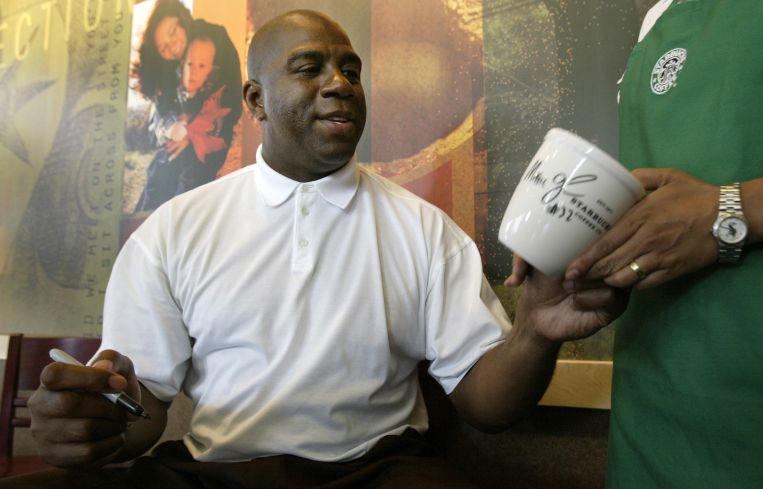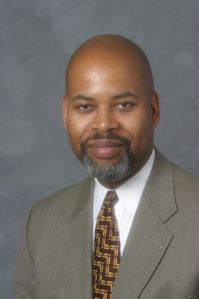Why Ex-Athletes Are in a League of Their Own in Commercial Real Estate
By G. Lamont Blackstone July 31, 2024 6:53 am
reprints
The worlds of commercial real estate and professional sports are merging, and recent stadium development projects are the architectural manifestation of that phenomenon. They are assembling diverse uses into pulsating districts — entertainment venues adorned with shopping, dining, apartments and hotels.
Thus, projects such as SoFi Stadium in Los Angeles (home of the NFL’s Los Angeles Rams) and Metropolitan Park near Citi Field (home of MLB’s New York Mets) announce one possible future for CRE dealmaking, one that’s spawned in America’s sports arenas. RCLCO, a real estate consultancy, has tracked seven sports venue-anchored development projects under construction in 2024 (that is, for teams affiliated with the five major sports leagues). And 34 are planned or under public consideration.
This growth was inevitable given the centrality of sports to America’s national identity. However, the prominence of athletic competition also reminds us of America’s journey in its revaluation of the value of ethnic minorities — aka, diversity and inclusion. Historically, professional sports played a seminal role in piercing the defensive line of segregation — as symbolized by the post-WWII re-integration of Major League Baseball by Jackie Robinson.

But just as professional sports advanced democracy’s field position toward equality, they are also cultivating talent pools for the CRE sector. Astute observers saw this years ago when Malcolm Johnson of Langdon Park Capital left the NFL to ultimately pursue a real estate finance career. We also witnessed it when Howard Cross left the New York Giants to build a brokerage career at Cushman & Wakefield. These examples, and many more, illustrate an innovation promising yet another sports-related future for CRE.
Of course, given the demographics of pro sports in America, that human capital pool will often be Black and Latinx. One of the CRE sector’s talent initiatives, Project REAP, experienced this paradigm when two former professional basketball players completed its training academy. I would also recognize this sports pipeline when both Johnson and Cross served as instructors for Project REAP. And given the explosion of interest in women’s basketball, that CRE talent pool could be increasingly female as the nation revalues the value of female sports. (Spoiler alert: Women have as much will to win as their male counterparts.)
Yet, unlike athletic competition, the CRE sector doesn’t conduct Olympic tryouts to recruit its talent. But maybe it should, particularly given the traits and capabilities athletes embody. Successful athletes are goal-oriented, work well in teams, and harbor exceptional work ethics — all traits essential for success in any business. They also possess fluency in the lingua franca of business relationship-building: sports lingo. Think of how many times phrases such as “slam dunk,” “home run” and “moving the goal post” are inserted into the language of everyday dealmaking.
Hence, athletes are the kindred spirits of high-performing brokers and other CRE professionals. Perhaps fittingly, some of that athletic talent may even circle back to broker, lease or partner in developing those future sports venue-anchored projects.
We should note, however, those talent pools are emerging even before top athletes are beginning professional careers. America is now in this new era of NCAA governance in which college athletes can profit from their names, images and likeness (NIL). Accordingly, elite college athletes must think of themselves as businesses and carry that mindset into the careers they pursue — whether sports, commerce or commercial real estate. Consider the WNBA’s Angel Reese, who reportedly achieved a NIL valuation of $1.7 million while still in college. Not bad for a communications studies major before receiving her degree.
The best collegiate athletes may be unavailable to the CRE sector for several years, as they transition into professional sports. Yet, iconic examples such as Magic Johnson, Alex Rodriguez and Grant Hill demonstrate there is life (and real estate aspirations) after the game-day stage. So, too, will the less-iconic talents incubated by the NBA, NFL and other leagues. And CRE executives who are Project REAP alums — such as London Kemp Boykin of Amazon — recognize the talent source potential of collegiate athletes.
A 19th century philosopher once proclaimed: “There is more wisdom in your body than in your deepest philosophy.” That may sound like a paradox. But in this century, it can mean that those who are students of their bodies (i.e., athletes) are equipped with a form of competitive intelligence, a capability that’s transferable to the arena of CRE. Thus, when industry leaders build their organizations for Olympic-level prowess in dealmaking, they should ask: Who are the talents that sports institutions will forge for eventual success in real estate markets?
G. Lamont Blackstone is a commercial real estate consultant and urban redevelopment specialist who is also the former board chair of the national diversity initiative Project REAP.



